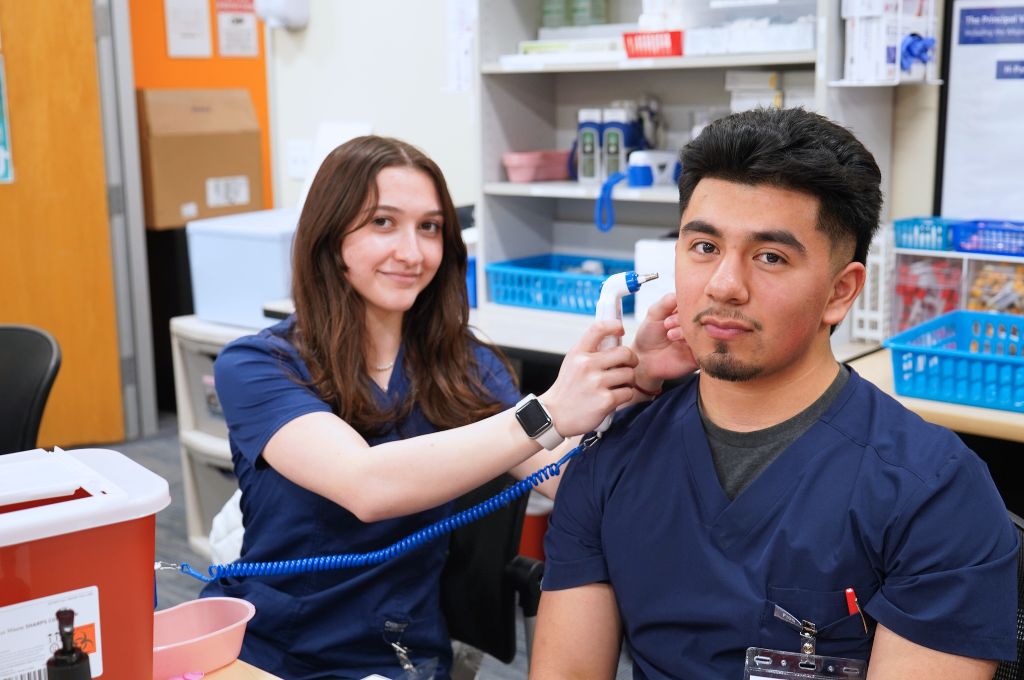Table of Contents
Entering the world of healthcare is a noble pursuit, and with the industry’s constant growth and evolution, there are more opportunities than ever for those looking to start a career in this field. Whether you’re a recent graduate, a job seeker, or a career changer, the paths within healthcare are as diverse as they are rewarding. This comprehensive guide will walk you through the steps to get started in healthcare.
Exploring Healthcare Career Paths
The healthcare industry offers career paths catering to various interests and skill sets. If you’re at the starting line, consider entry-level positions as your gateway. These jobs often require little to no experience but provide valuable exposure to healthcare settings and patient care. Positions like medical assistants and phlebotomists offer a front-row seat to the action and can serve as stepping stones to more advanced roles.
Climbing the Ladder
Entry-level positions lay the foundation for growth, and it’s essential to understand the learning curves and potential for advancement each role offers. For instance, medical assistants may further their careers as medical administrative specialists, while nursing assistants can pursue licensed practical nurse (LPN) or registered nurse (RN) roles through bridge programs.
Specializations and Certifications
Even at the starting line, it’s beneficial to explore specializations. A certification in a niche area like phlebotomy or medical coding can make you more competitive, open doors to higher-paying positions, and signify a level of dedication and expertise to potential employers. Discover our healthcare certification programs for your desired career path and take the first step toward your goals.
Essential Skills for Success
In healthcare, technical proficiency is just one piece of the puzzle. Soft skills such as empathy, strong communication, and the ability to work under pressure are equally important. Compassion and a patient-centric approach are the pillars of any healthcare role. Cultivating these traits will contribute to professional and personal satisfaction in your career.
Compassion and Empathy
Healthcare is a compassionate field, and the ability to show empathy and connect with patients on a human level is invaluable. You can gain these skills through volunteer work, shadowing experienced professionals, or courses and workshops on patient interactions.
Technical Skills and Certifications
While many entry-level positions in healthcare do not require extensive training, obtaining relevant technical skills and certifications can fast-track your career progression. Staying current with the latest medical software and technologies is also crucial, as the healthcare industry increasingly relies on digital tools to deliver care.
Navigating the Job Search
Building a strong foundation of skills and experiences is just the beginning. The healthcare job search process has unique challenges and pathways, from crafting a healthcare-optimized resume to networking effectively within the industry.
Resume Tips
A healthcare resume should highlight your clinical experience, technical skills, and related certifications or training. Use specific examples to demonstrate your impact and abilities, and ensure your resume reflects the language and expectations of the healthcare sector.
Interview Strategies
Interviews for healthcare roles often include situational questions that test your problem-solving abilities and judgment. Prepare by reviewing common medical scenarios and the best practices for patient care, and be ready to discuss how you handle high-pressure situations with composure and professionalism.
Networking
Building connections with professionals in the healthcare field can provide valuable insights and job leads. Join professional organizations, attend industry events, and connect with colleagues or healthcare instructors who can offer guidance and referrals. The healthcare community is often tightly knit, and relationships can be a powerful tool in your job search.
Industry Insights and Trends
Staying informed about the latest developments and trends in healthcare is beneficial for your job search and long-term career planning. The industry is dynamic, with new technologies and practices continually reshaping the landscape.
Technology Impact
Healthcare technology (HealthTech) is revolutionizing patient care. From electronic health records (EHRs) to telemedicine, technology creates new opportunities for efficiency and accessibility. Please familiarize yourself with these tools and consider how to integrate them into your professional toolkit.
Remote Work and Telemedicine
The rise of remote work and telemedicine presents new ways to deliver healthcare services. Roles traditionally tied to physical locations are now expanding to include remote or telehealth components. This shift can offer greater flexibility and work-life balance, especially for those just starting in the field.
Healthcare Careers of the Future
As you progress in your career, keep an eye on emerging job roles that may align with your interests and skill set. There is significant growth and demand for new talent in healthcare, data analyst, informatics nurse, and genetic counselor positions.
Getting Started
Joining the healthcare workforce is a significant and noble endeavor that promises a fulfilling career of service and continuous learning. You can begin a meaningful and prosperous journey by setting a clear path, honing your skills, and staying attuned to the industry. The healthcare industry is not merely a sector of jobs; it’s a field of infinite possibilities, where every role, from the entry-level to the expert, plays a vital part in the delicate tapestry of patient care.
For those of you considering a healthcare career, schedule a 15-minute consultation with us to get started on your dream career today. Welcome to the beginning of a deeply impactful and fulfilling career—a healthcare career awaits. We’re excited to guide you on this journey towards your new job!

